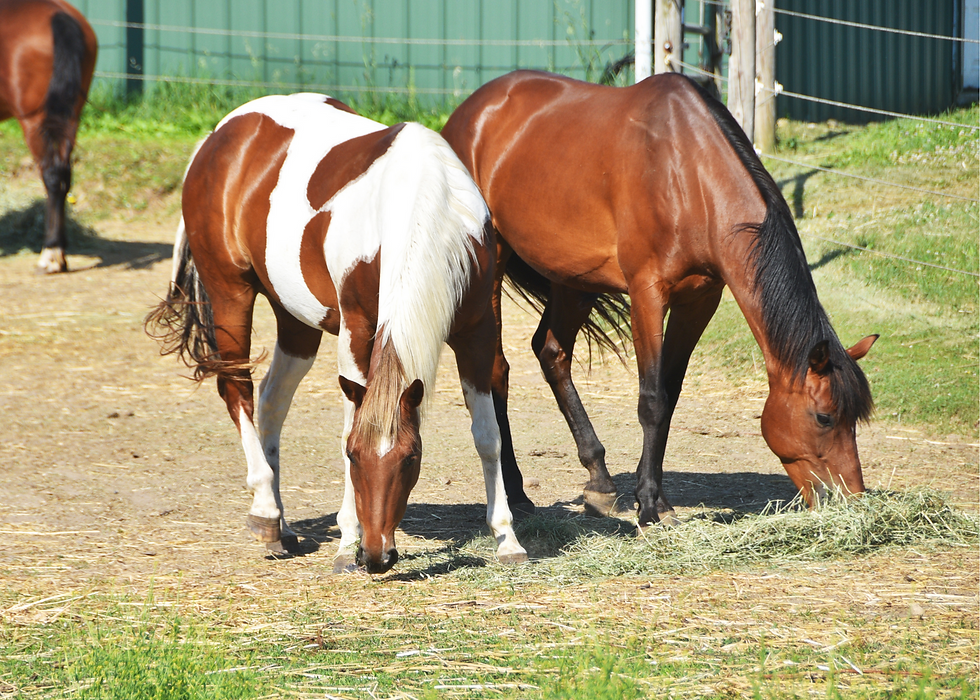When it comes to feeding horses, one of the most important considerations is selecting the right hay. With various types of hay available, it can be challenging to determine which hay is best for horses. This decision is crucial as it impacts your horse’s health, energy, and overall well-being.
In this article, we will explore different types of hay, their nutritional benefits, and which might be the best choice for your equine friend.

The Importance of Hay in a Horse’s Diet
Hay is a staple in a horse’s diet, providing essential nutrients and fiber necessary for maintaining a healthy digestive system. Horses require a diet rich in roughage to prevent digestive issues such as colic and to ensure proper nutrient absorption.
Choosing the right hay can also affect a horse’s energy levels and performance, making it a vital component of equine nutrition.
Types of Hay for Horses
1. Alfalfa Hay
Alfalfa hay is a popular choice for many horse owners due to its high protein content and palatability. It is particularly beneficial for young, growing horses or those with high energy demands, such as performance horses.
However, it is essential to balance alfalfa with other types of hay to prevent excessive protein intake, which can lead to health issues.
2. Timothy Hay
Timothy hay is known for its balanced nutritional profile, making it an excellent choice for horses that do not require high protein levels. It is rich in fiber and provides a moderate amount of energy, suitable for maintenance diets.
3. Orchard Grass Hay
Orchard grass hay is another favorite among horse owners, offering a soft texture and sweet taste. It is similar in nutritional content to timothy hay, providing a good balance of fiber and nutrients.
4. Bermuda Grass Hay
Bermuda grass hay is commonly available in regions with warm climates. It is lower in protein compared to alfalfa but provides sufficient fiber to support digestive health.
5. Oat Hay
Oat hay can be an excellent addition to a horse’s diet when used appropriately. It is high in fiber and energy, making it suitable for horses with higher caloric needs. However, it should be fed cautiously to avoid excessive starch intake.
Factors to Consider When Choosing Hay
Nutritional Needs
Understanding your horse’s nutritional requirements is critical when selecting the best hay. Factors such as age, workload, and health conditions play a role in determining the appropriate type of hay.
Quality of Hay
Always inspect hay for quality before purchasing. Look for hay that is free from mold, dust, and weeds. High-quality hay will have a fresh smell and a vibrant green color.
Availability and Cost
The availability and cost of hay can vary depending on your location and the time of year. It’s essential to plan ahead and ensure a consistent supply of quality hay for your horses.
Balancing Hay with Other Feed
While hay is a crucial component of a horse’s diet, it should be balanced with other feeds to meet all nutritional needs. For more information on balancing feeds, you can refer to this metabolic issues guide.
Common Myths About Hay
Myth 1: All Hay is the Same
Many believe that all hay is the same, but this is far from true. Each type of hay offers different nutritional benefits and should be chosen based on the horse’s specific needs.
Myth 2: Alfalfa is Only for Performance Horses
While alfalfa is often associated with performance horses, it can be fed to other horses in moderation, especially those requiring higher protein levels.
Conclusion
Choosing the right hay for your horse is vital for their health and well-being. By understanding the different types of hay and their nutritional benefits, you can make informed decisions that support your horse’s dietary needs.
For more information on horse nutrition, you can visit this external resource.

FAQs
What is the best hay for a senior horse?
For senior horses, a mix of soft grass hay like orchard grass, supplemented with a senior feed, is often ideal.
Can horses eat only alfalfa hay?
While horses can eat alfalfa hay, it should be balanced with other types of hay to prevent excessive protein intake.
How can I tell if hay is of good quality?
Good quality hay is free from mold, dust, and weeds, with a fresh smell and vibrant green color.
This article contains affiliate links. We may earn a commission at no extra cost to you.
